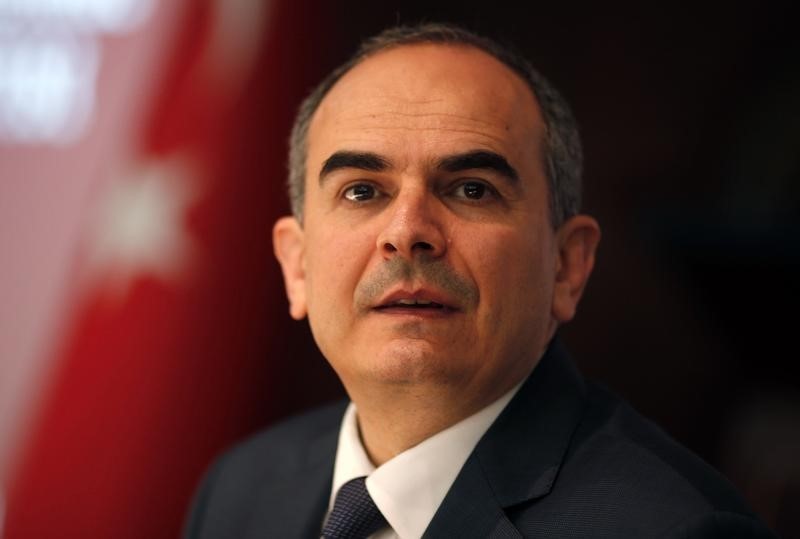By Daren Butler and Nevzat Devranoglu
ISTANBUL (Reuters) - Turkish inflation will fall sharply this year but a crash in oil prices and subdued economic growth won't be enough to bring it down to the central bank's target, a Reuters poll showed on Thursday.
Turkish government officials have warned that tensions in neighbouring Iraq and Syria, as well as Ukraine, combined with slower expansion in Europe, could hold back economic growth.
The survey of 28 economists showed consumer price inflation is expected to fall to 6.6 percent in 2015 and to 6.5 percent in 2016 from 8.2 percent last year, still well above the central bank's target of 5 percent.
Turkey's economy is now expected to grow 3.5 percent this year and 4.0 percent in 2016, compared with an estimated 3.0 percent in 2014, the poll suggested.
Is Investment economist Muammer Komurcuoglu said growth would remain below the government's medium-term programme targets for the next three years.
"The contribution of net exports to growth will be lower and we think the weak trend in the European Union economy will continue," Komurcuoglu said.
Expectations for U.S. Federal Reserve interest rate hikes were also likely to restrain growth if it triggers a risk-off attitude in markets, he said.
The World Bank on Tuesday lowered its global growth forecast for 2015 and next year due to weaker economic prospects in the euro zone, Japan and some major emerging economies that offset the benefit of lower oil prices.
"The reason that we expect an improvement in the growth outlook this year is a strong revival in domestic demand thanks to the bear run in oil prices and possible (interest) rate cuts," Komurcuoglu said.
The Turkish central bank has kept interest rates on hold for the last four months despite a recent fall in inflation expectations, saying it will keep policy tight until there is a clear improvement in the outlook for prices.
After hiking rates sharply in January last year to halt a slide in the lira which tumbled along with other emerging market currencies, the central bank cut rates in May, June, July and August.
Central Bank Governor Erdem Basci said last month lower oil prices could help inflation fall close to the bank's 5 percent medium-term target this year, with a strong fall possible in the first four months.
The central bank is expected to cut its one-week repo rate to 7.75 percent this quarter from 8.25 percent currently before raising it back to 8.0 percent in the second half.
The ruling AK Party, which has built its reputation partly on rapid economic development, faces a parliamentary election in June and both ministers and President Tayyip Erdogan have repeatedly called for lower interest rates to support growth.
The poll suggested Turkey's current account deficit, cited as one trigger for sudden capital outflows early last year, would be $39.6 billion (25.96 billion pounds) this year before widening to $45.3 billion in 2016. In the first 11 months of last year, the deficit stood at $38.72 billion.
